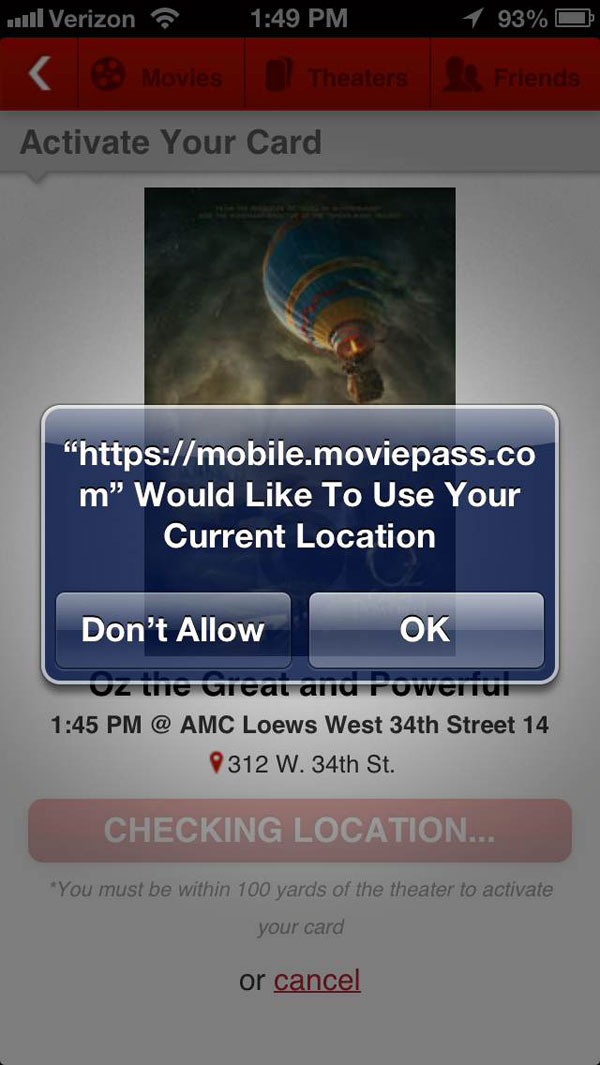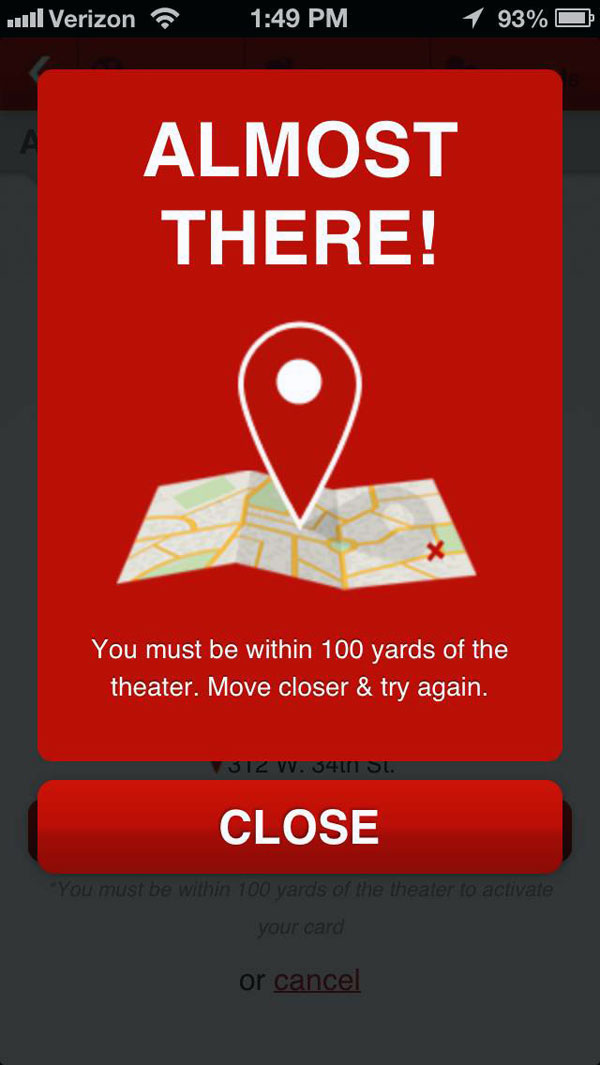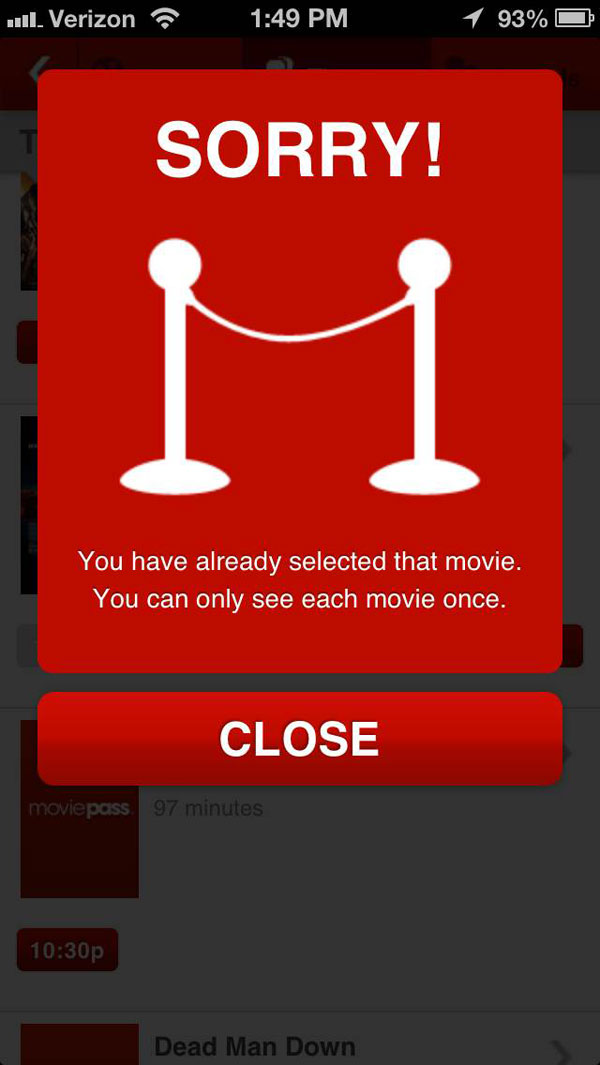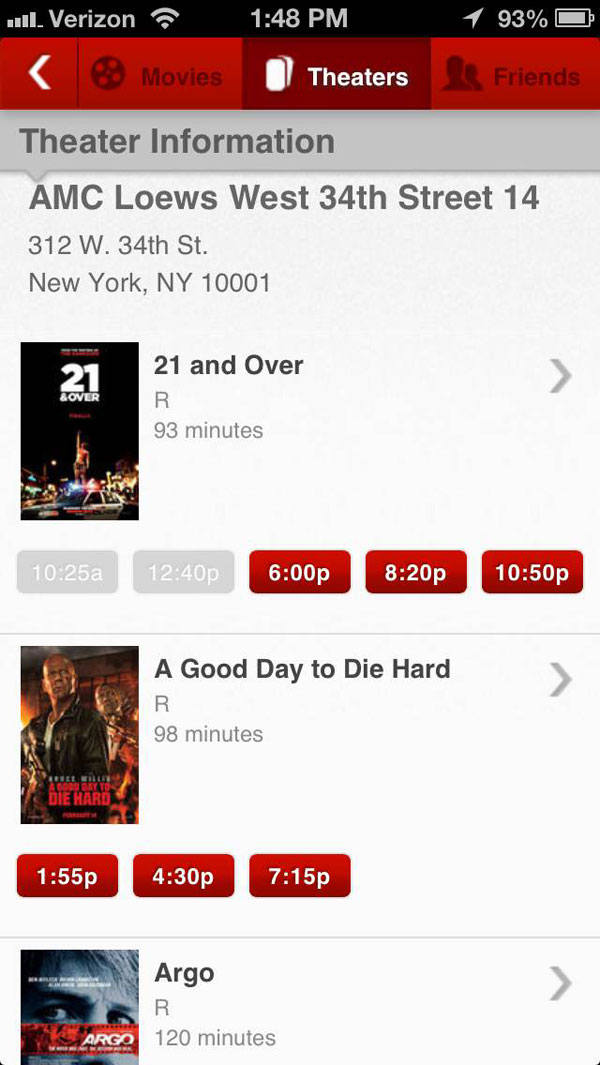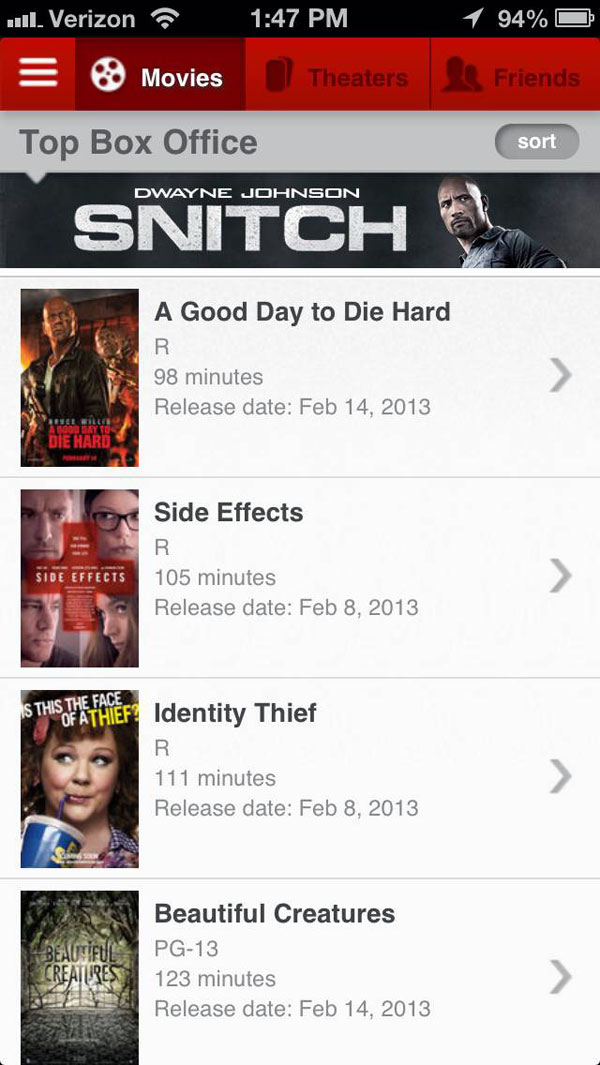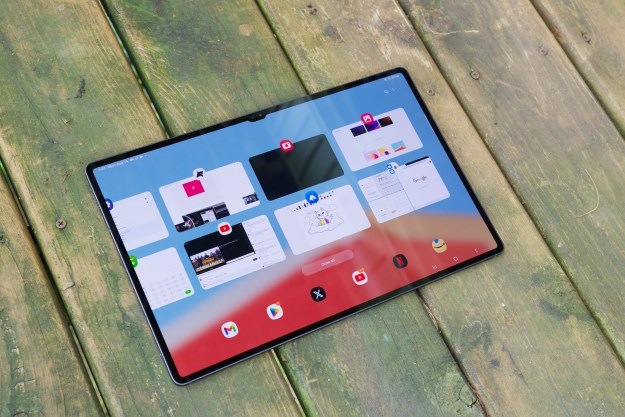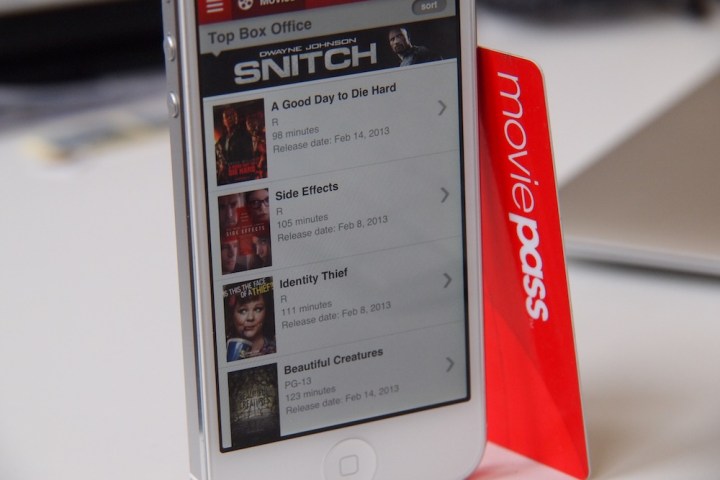
I’m a huge fan of seeing movies on the big screen. If I don’t make it to at least one movie a week, something’s amiss. It’s just who I am. The problem is that I live in New York City, where prices start at $13 a pop. When I first heard of MoviePass last fall, I signed up for the beta immediately.
MoviePass is a monthly subscription service that lets you go to the theater and see a movie every day for as little as $30 a month. I’ve used it for five months now, and it’s turned my frequent cinema trips a lot more affordable. But is it right for you? I sat down with its co-founder and CEO recently to learn more. Below are my trials, tribulations, and insights into MoviePass, a service that’s trying to bring the convenience of a Netflix-like service to the big screen.
How it works

Once you sign up, MoviePass prompts you to download the iPhone app or Android app. Then you’re mailed your own MoviePass debit card. To see a movie, go to the theater, select the movie you want to see and its showtime on the MoviePass app, then check in. The second MoviePass knows you’re actually in the theater, it activates your debit card. MoviePass worked with Discover Card to patent this concept.
If you don’t remember to check in before you get in the ticket line, it can be awkward.
Thanks to Foursquare, checking in is not an abnormal idea, but it can get cumbersome, especially if your phone is acting up. Ninety percent of the time, it went off without a hitch, but if you don’t remember to check in before you get in the ticket line, it can quickly get awkward. On at least one occasion, I had to make a cashier wait while I checked in and my card activated because I didn’t do it as soon as I got to the theater. It was awkward, but still better than coughing up $14 for the ticket. Once you get used to checking in as you leave the car or enter the theater, this becomes a moot point. The app was a little buggy at first, but it’s getting better.
Why would a smartphone-centric service need to mail you a physical debit card, you might wonder? Shouldn’t we be NFCing and tapping and using fancy space-age techniques to buy these tickets? Nope. The benefit to having a card is that it just works. The card allows MoviePass to work in every theater in the U.S. that takes credit cards. So far, I haven’t been able to find a theater that doesn’t support the service. This is one of the coolest things about MoviePass. You can literally use it anywhere, at any theater chain. In the last few months, I’ve seen movies in Manhattan, all over Michigan, and even Baltimore. It just works.
Odd limitations
There are some limitations. To prevent Twilight girls and crazy fanboys from signing up and putting the company out of business by seeing movies 24/7 for a month straight, you can only see one movie a day. On top of that, it can’t be a 3D or IMAX movie, you can only see each movie once, and MoviePass doesn’t yet have a service for couples. Fresh out of beta, it’s a service for 1 person and 1 ticket. But all of this will soon change, I’m told.
“The next level will be a movie a day, 3D and IMAX included, and you can a la carte bring a friend,” said Spikes, who told me about a number of new ideas the company is toying around with. “We’re also thinking of having a [much cheaper] “no weekends” deal where you might only be able to go during the week. During the week it would be restricted to certain chains who are partnering with us.”
Targeting the ‘influencers’
MoviePass is a service for those who love going to the movies. I asked Spikes if its wise to target such a niche group of people, but as a movie buff himself, he couldn’t be more enthusiastic about the type of people signing up for MoviePass.

And target them, he plans to. On top of expanding the service to include couples, 3D movies, and IMAX, he wants to help MoviePass subscribers form a sort of union, gaining special privileges by being part of the club. Because the people that sign up for MoviePass are the most rabid fans of movies, they also tend to spend the most money on DVDs, Blu-rays, music, video games, and many other things movie studios want. Basically, MoviePass plans to lure big movie studios into providing special deals for its subscribers because, well, they are the most important audience those studios have.
“The people who sign up for MoviePass are not just passive moviegoers,” said Spikes. “They’re active moviegoers. They buy the most DVDs, they buy the most video games. If you want the movie; if you want the sound track; if you want the watch that James Bond is wearing: The subscription is the relationship. [We hope that] you’ll get invited to premieres. You’ll get invited to events and things. Studios will say, Jeffrey saw the last Batman, and he blogs, and he writes. Let’s invite him.”

The power of being independent
MoviePass is independent and works outside the world of the control of movie studios and theaters. I thought I might run into a theater that hassled me for using the service, but they don’t care. Money is money, and they’re getting paid. As long as the debit card works, the theaters don’t have a problem. They may have reason to applaud MoviePass though. In a world where movie theater attendance has been steadily dropping, it’s a service that really encourages people to go to the movies more. The service conducted its own study of beta subscribers and found that using MoviePass increased the amount people went to the theater by 64 percent and increased concession purchases by 123 percent.
But MoviePass struggled before it finally decided to go around the movie industry instead of working with them. For half a decade, it tried desperately to work with movie studios and theater chains, but they didn’t want to rock the boat, or potentially harm profits. Spikes and his team even launched as a more limited service back in 2006 as a SMS product, but was soon made obsolete by the era of the iPhone and apps. After years of beating its head against an entrenched industry, MoviePass decided to go it alone. By being independent, the service has more options. And if it succeeds, big chains like AMC and movie studios will be quick to hop aboard. Currently they’re watching, waiting to see if the idea works.
But do the economics work? Here in New York, movies cost as much as $14 a piece, but I’m only paying $30 a month. If I see two films a month, I’m already coming out even. The trick is having recurring subscribers, Spikes told me. Not everyone will overspend every month, which keeps the service in the black.
“If everyone overused, subscription services wouldn’t work,” Stacy Spikes, co-founder and CEO, told me bluntly as he rattled off business reasons why MoviePass makes a lot of financial sense. “We don’t have to buy inventory in advance. We don’t have to structurally build out. We don’t have retail components. [We don’t have a lot of initial cost.] Ours is a very light and scalable business. You’re paying up front. You have to eat into what you’re paying. We’re not pre-purchasing inventory that’s wasting [away]. We’re the thing between a brick & mortar and the user. Netflix lives and dies by its deals with the studios. We don’t have to deal with that. That’s a very rough business.”
In other words, MoviePass will only make money as long as some of its users aren’t seeing enough movies each month.
The one-stop shop for movie buffs
MoviePass may not live or die by its deals with studios, but it will live or die by how it treats its customers. Currently, the service is still young; it’s quirks are forgivable. And my time with it has been mostly very positive. The only problem I’ve had is communication. When I first signed up for MoviePass, there wasn’t a sheet that told me the rules. I didn’t know I couldn’t see 3D movies, for example. I’ve also had difficulty doing some things like, say, changing my password or altering my account. Because the service is mostly app-based, it doesn’t yet have a great website to go to to modify your account either. And what do I do if I lose my card?
There are questions and a lot of ground MoviePass needs to cover, but for film enthusiasts, it’s a great bargain. Spikes told me that he wants MoviePass “to become the one-stop shop for film enthusiasts” and even seemed to hint at things like having a MoviePass streaming service in the future. These are all awesome ideas. Right now, though, I’d be happier if I could take a date to the movies and not have to pay twice. There is still no couples option.
Now that my movies are paid for, I’m left to wonder where I sign up for a PopcornPass. Can someone get on that?
If you decide to stay in, check out our guides to some of the best TV shows on Netflix and best movies on Amazon.
Editors' Recommendations
- MoviePass 2.0 will arrive this summer with new prices
- Regal’s subscription plan will fill the MoviePass-shaped hole in your life
